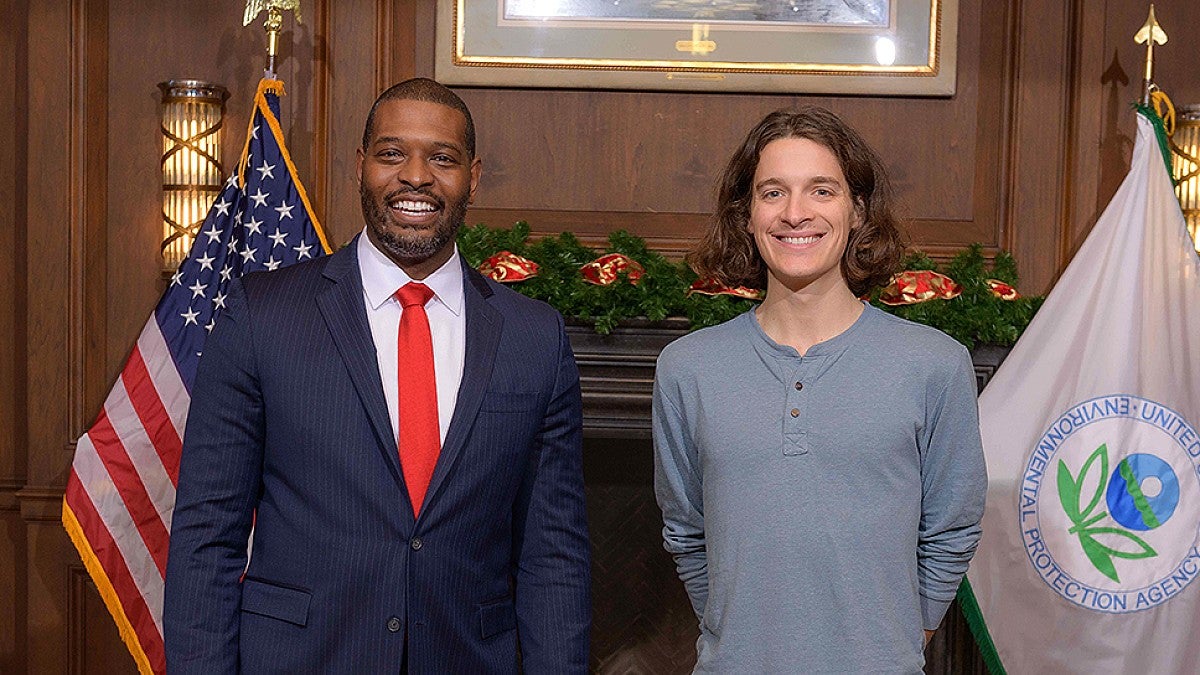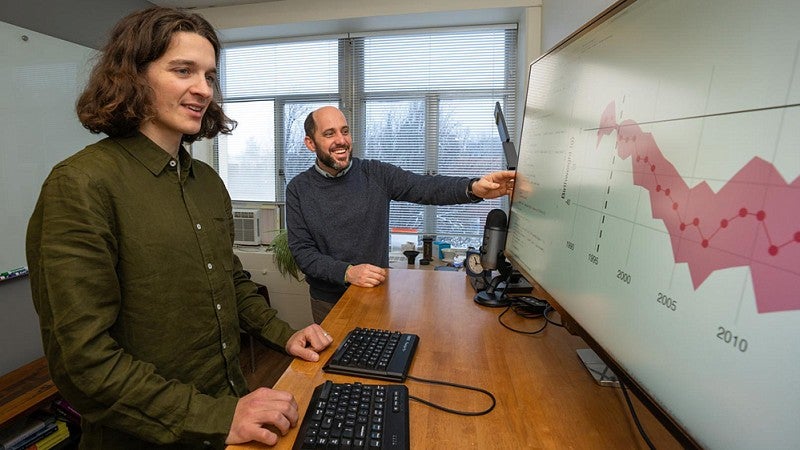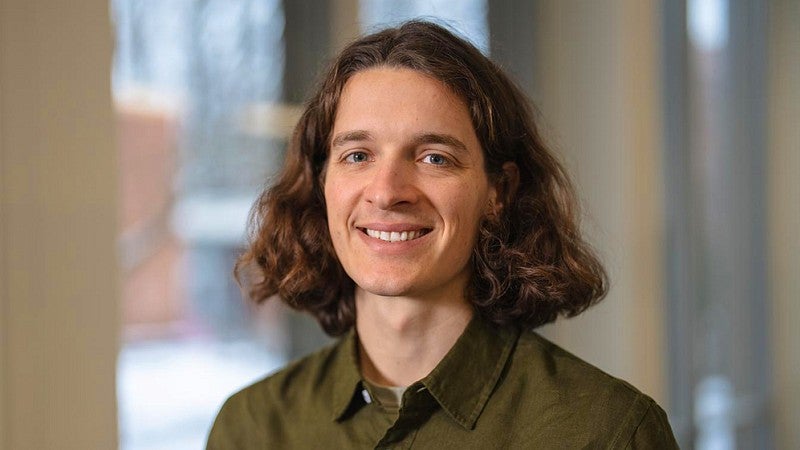
Experiential Learning | Research & Innovation | Community Impact | Career Preparation | Teaching Excellence | 21st Century Liberal Arts | Building Community | Good Vibes | CAS Spotlights | All Stories | Past Issues

Economics for a Healthier Planet
BY HENRY HOUSTON
APRIL 7, 2025
How much do Americans value clean water versus affordable meat? These are the types of tradeoffs Emmett Reynier had to weigh while participating in a research fellowship with the US Environmental Protection Agency.
“EPA economists add up the benefits and costs of proposed rule changes. For example, requiring slaughterhouses to install water better treatment technology,” Reynier says of his time at the EPA’s Office of Water in Washington, DC, where he focused on the Clean Water Act and how it applied to a new regulation on water runoff from industrial slaughterhouses.
But the value of clean water might diminish the further people they are from a river or lake. “We were trying to estimate that relationship using new data sources and methods,” he adds. “It's fun for me, because my research gets used by real people doing real things out in the world.”
After graduating in winter term with a PhD in economics from the University of Oregon College of Arts and Sciences, Reynier is on track to become an economics professor—but he almost didn’t pursue graduate studies at all.

During his final semester as an undergrad at the University of Virginia, he already had a job lined up working as a business analyst for Car Max. But while discussing his future on a run with an economics professor, he heard a pitch that would change his course entirely: Get a PhD.
“I didn’t know what it meant to be a professor,” he says. “I just thought they were teaching and didn’t appreciate the high-level research they do.”
He applied to the UO Economics department because of its reputation for expertise in environmental economics.
As a PhD student in CAS, Reynier’s environmental economics research has ranged from how to better design subsidies for residential solar panels to the health impacts of using herbicides in the rural US.
In early 2025, he published a study with economics Professor Edward Rubin on the health impacts of herbicides used by the agricultural industry. The research found lower birth weights and gestation periods in US agricultural counties that had an increased use of glyphosate, an herbicide to kill weeds.
Studying economics at the graduate level is a way to dig deeper into human behavior and decision-making, such as how people change their decisions after certain policies or tax programs are enacted, Reynier says. It’s not just equations and formulas, he adds. It’s a way to understand human behavior at a larger scale—and how the world works.

“A lot of the environmental issues that we have are some of the biggest issues with our current economy,” he says. “The economy isn’t well suited to deal with environment issues, so there’s a huge need for good research on effective policies.”
For example, as economists add up the benefits of clean water for recreational use on rivers and lakes, they also consider the costs for slaughterhouses to install water treatment technology. But the value people place on a clean environment—and what it offers for recreation and biodiversity—varies person to person in ways that Reynier says are not well understood, highlighting its importance for future research.
Before Reynier heads to the University of Georgia’s economics department as a faculty member, he’ll first work at Stanford University as a postdoctoral researcher. He plans to continue collaborating with Rubin on environmental economics issues.
“There's no market for clean water or clean air, so the government has to step in,” Reynier says. “My angle on environmental economics has also been very policy oriented. At the end of the day, I hope my research can be used by policymakers to make decisions.”
